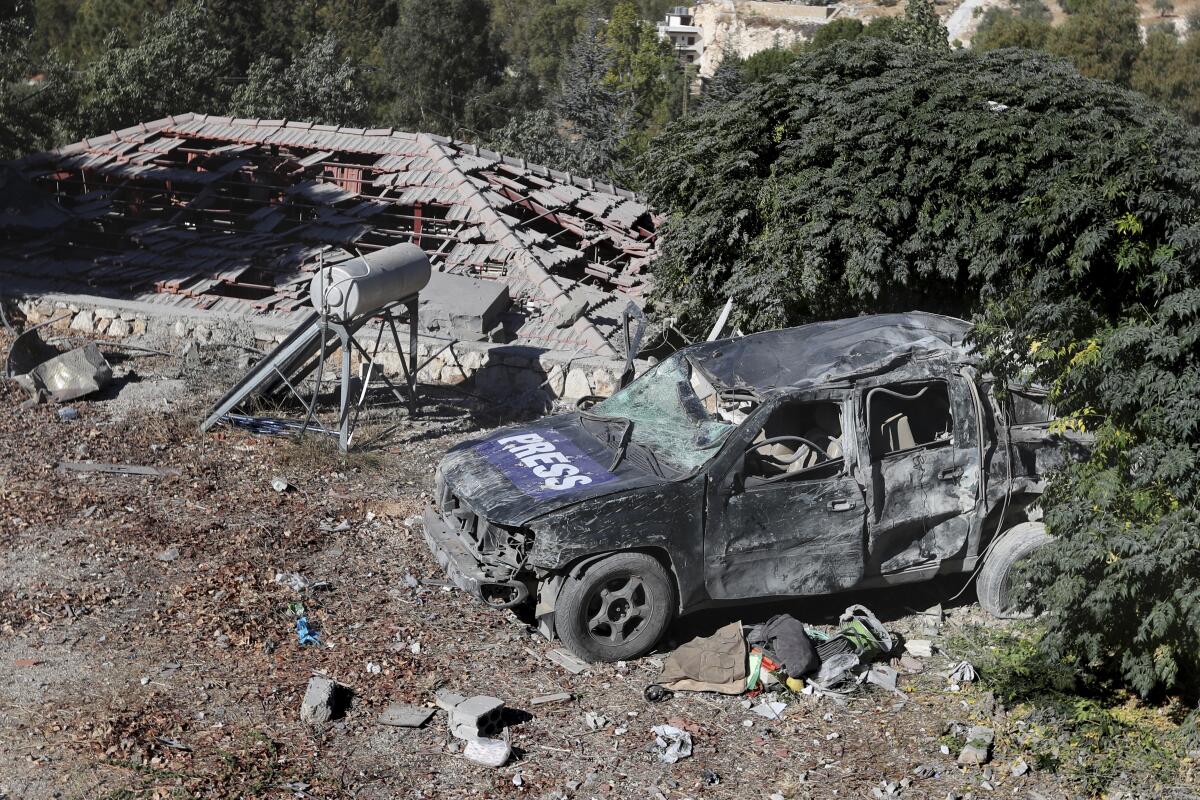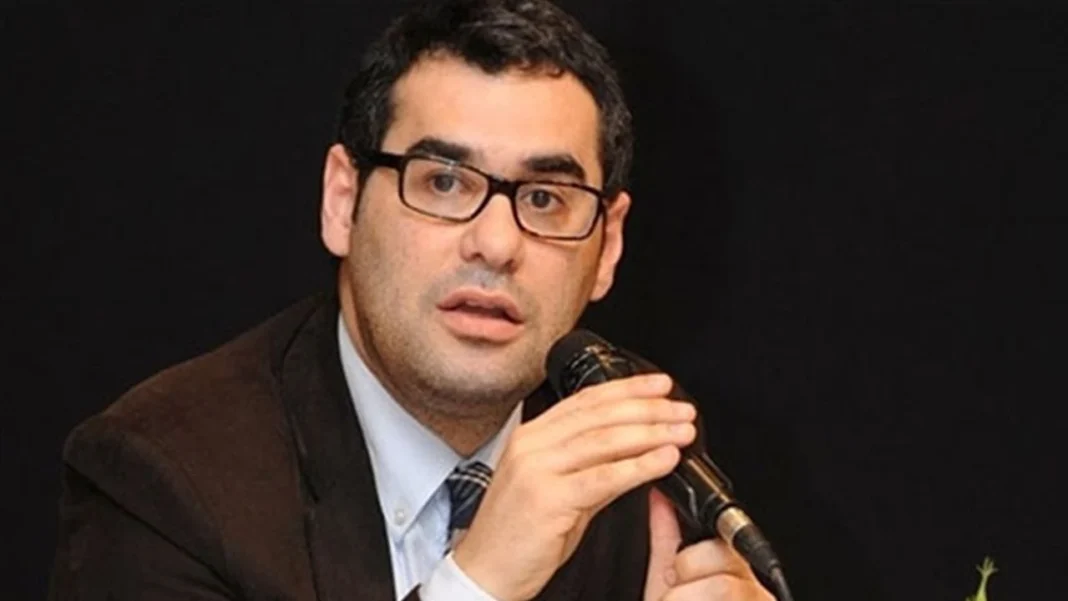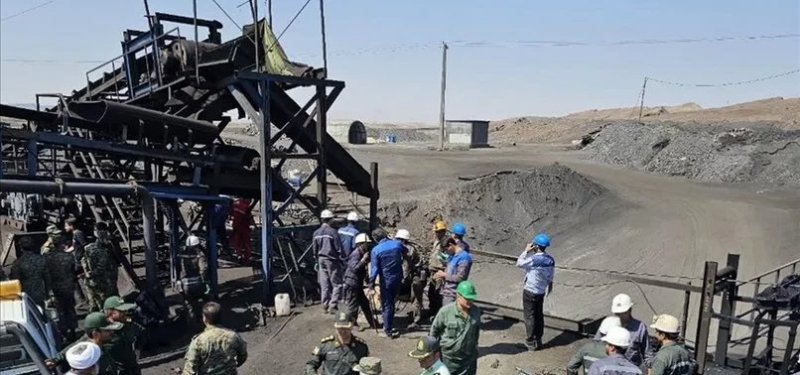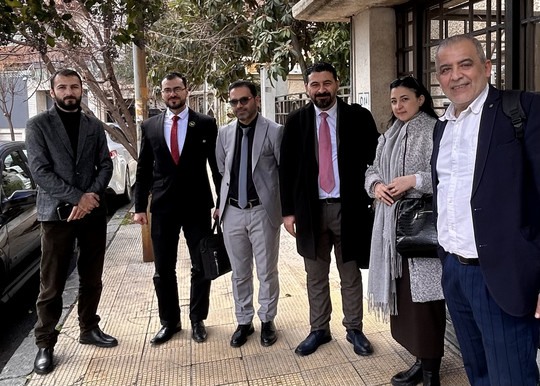
Council of Europe Urges Ireland to Strengthen Protections for Journalists
October 25, 2024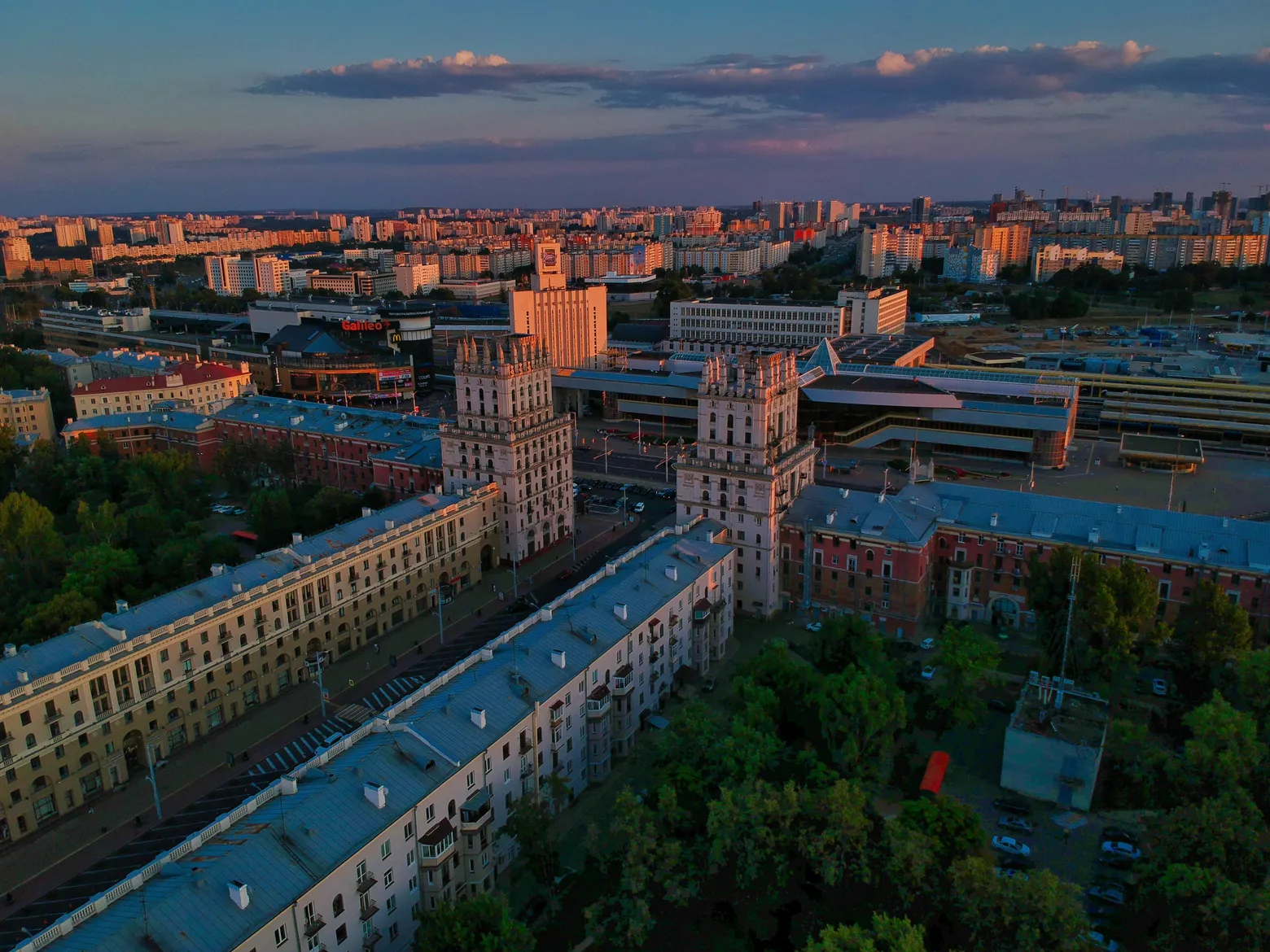
Belarus’s Media Purge Deepens with Two More Arrests
October 25, 2024October 25, 2024 – Lebanon –
An Israeli airstrike on the southern Lebanese town of Hasbaya killed three journalists and injured several others. The journalists were staying in a residential compound that housed members of the press covering the growing conflict along the Israel-Lebanon border. According to Lebanese officials and local media, the strike occurred around 3 a.m., hitting a building used by journalists and destroying vehicles marked with the word “PRESS.”
The victims were identified as Ghassan Najjar, a cameraman for Al-Mayadeen TV; Mohammad Reda, a broadcast engineer for the same outlet; and Wissam Qassem, a cameraman for Al-Manar TV. All three were reportedly asleep at the time of the strike. Lebanon’s Information Minister and multiple press freedom groups labeled the attack a deliberate targeting of media workers. The Lebanese government called the strike an “assassination” and demanded international accountability.
The Committee to Protect Journalists (CPJ) strongly condemned the attack, calling it a potential war crime and urging an independent international investigation. CPJ noted that the journalists were not engaged in combat and emphasized that under international humanitarian law, deliberate attacks on journalists constitute war crimes. Human Rights Watch later reported that the munitions used may have included U.S.-supplied Joint Direct Attack Munitions (JDAM), raising further questions about accountability and arms responsibility.
This strike is part of a troubling pattern of violence against journalists in the Israel-Hezbollah conflict. It echoes the October 2023 killing of Reuters videographer Issam Abdallah, who was struck by Israeli fire despite being in a press-marked location. The Hasbaya incident brings renewed attention to the lethal risks faced by journalists covering war zones, particularly in the Middle East, where civilian protections are often disregarded.
As calls grow louder for transparency and justice, media watchdogs warn that without accountability, such attacks will continue unchecked. The deaths of Najjar, Reda, and Qassem underscore the urgent need for international mechanisms to protect journalists and defend the essential role they play in exposing the realities of war.
Reference –
https://www.bbc.com/news/articles/cpvz2rzm4k0o

